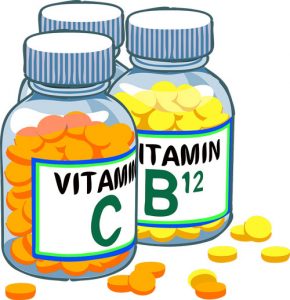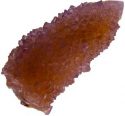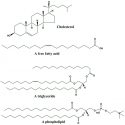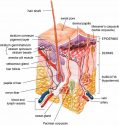 Vitamins and Minerals and one of the most famous and required nutrients that almost every person knows. Every living organism including humans, animals, and plants needs vitamins and minerals along with other nutrients for good health.
Vitamins and Minerals and one of the most famous and required nutrients that almost every person knows. Every living organism including humans, animals, and plants needs vitamins and minerals along with other nutrients for good health.
Food can be broken up into several main components such as carbohydrates, proteins, fats, vitamins, and minerals. Therefore, humans and other organisms take a variety of food to get all the necessary minerals, vitamins, and other nutrients.
Our body does not take food directly from the stomach. Instead, the food we eat is gradually broken down in small particles in the stomach and then in the intestines. The food is broken down with the help of enzymes. The broken-down food is easily absorbed by the small intestine in the form of vitamins, minerals, carbohydrates, Proteins, fats, and water.
What are Vitamins?
The word “vitamin” has been derived from “Vitamine” by a biochemist, Casimir Funk, in the year 1912. Vitamins are the micronutrients (required in small quantities) of food which are essential for our health and are required every day. Furthermore, vitamins are organic and complex Molecules that we normally get from other living things, e.g. by eating plants or meat.
Types of Vitamins
Vitamin can be classified into two main types, which are water-soluble vitamins and fat-soluble vitamins. Let’s discuss these two types of vitamins in more detail.
1 – Water-soluble vitamins
Water-soluble vitamins can easily go through the body with the help of water. Our bodies absorb the required amount of vitamins and excrete the excess vitamins with the help of kidneys. Water-soluble vitamins are usually needed in a small quantity. Furthermore, these vitamins can’t be stored in the body, so we have to take them daily by eating a variety of food.
Some of the important water-soluble vitamins are:
- Vitamin C – Vitamin C is a good antioxidant and helps in protecting the cells. It is obtained from oranges, lemon, grapefruit, red pepper, and green pepper.
- Vitamin B1 (Thiamine) – It helps us in the breakdown process of food and also releases energy from the food. It is found in grains, liver, nuts, and seeds.
- Vitamin B2 (Riboflavin) – It is useful in keeping our eyes, nervous system, and skin healthy and functional. It mostly comes from dairy products and grains.
- Vitamin B3 (Niacin) – It helps the neurons and also releases the energy from the food. It can be obtained from fish, meat, and grains.
- Vitamin B5 (pantothenic Acid) – Is is helpful in the cholesterol and hormones. It is obtained from meat of poultry and grains.
- Vitamin B6, Vitamin B7, Vitamin B9, and Vitamin B12 – These useful in various body functions, such as the making of red blood cells, synthesis of DNA, and metabolism. These vitamins are found in soya beans, fruits, leafy vegetables, and meat.
2 – Fat-soluble vitamins
Fat-soluble vitamins are different from water-soluble vitamins because they can be stored in the human body. Some of the fat-soluble vitamins are A, D, K, and E. They are very important vitamins for the human body health in performing different tasks. Furthermore, fat-soluble vitamins are found in vegetables, milk, cereals, turnip, and fruits.
What are Minerals?
Minerals are the inorganic compounds and are much simpler than vitamin molecules. Minerals are also part of the food and are very precious for our health – just like vitamins. Minerals are normally produced in the various geological processes and are found in nature in the form of rock. Also, minerals, like food, can be obtained from plants and animals when we eat them.
The deficiency of minerals can cause various problems in our bodies. For example, deficiency of Calcium causes weak bones and even bone loss.
Types of Minerals
All the minerals that a human body requires for normal functioning can be classified into two types; macrominerals and microminerals.
1 – Macrominerals
These minerals are required by our bodies in large quantities as compared to micro minerals. Some of the important macro minerals are potassium chloride, sulfur, calcium, magnesium, phosphorus, and Sodium. These minerals can be found in banana, wheat, soya bean, milk, and spinach.
The deficiency of these minerals can cause some problems such as weak and soft bones, tooth weakness, general weakness, and reduction of fluids in the body. Furthermore, macro minerals are stored in large amounts in our bodies.
2 – Microminerals
These minerals are required in a very small amount to our bodies. Some of the important microminerals are iron, iodine, Zinc, fluoride, copper, cobalt, and selenium. The good sources of these minerals are meat, eggs, beans, seafood, salt, meats, and vegetables. Moreover, due to their deficiency, several health problems can happen, such as heart problems, thyroid problems, metabolism dysfunctional, and respiratory problems. Furthermore, these minerals can’t be stored in large quantities in our body, so daily intake of these minerals is necessary for good health.
Interesting Facts
- Cooking vegetables for a long time can decrease their minerals and vitamins.
- Iron is one of the vital minerals whose deficiency can cause problems of oxygen transportation in red blood cells.
- Vitamin D is fat-soluble and can also be obtained by exposing our skin to sunlight.
- Drinking tea and coffee after meals can create problems in the absorption of iron from the eaten food.





